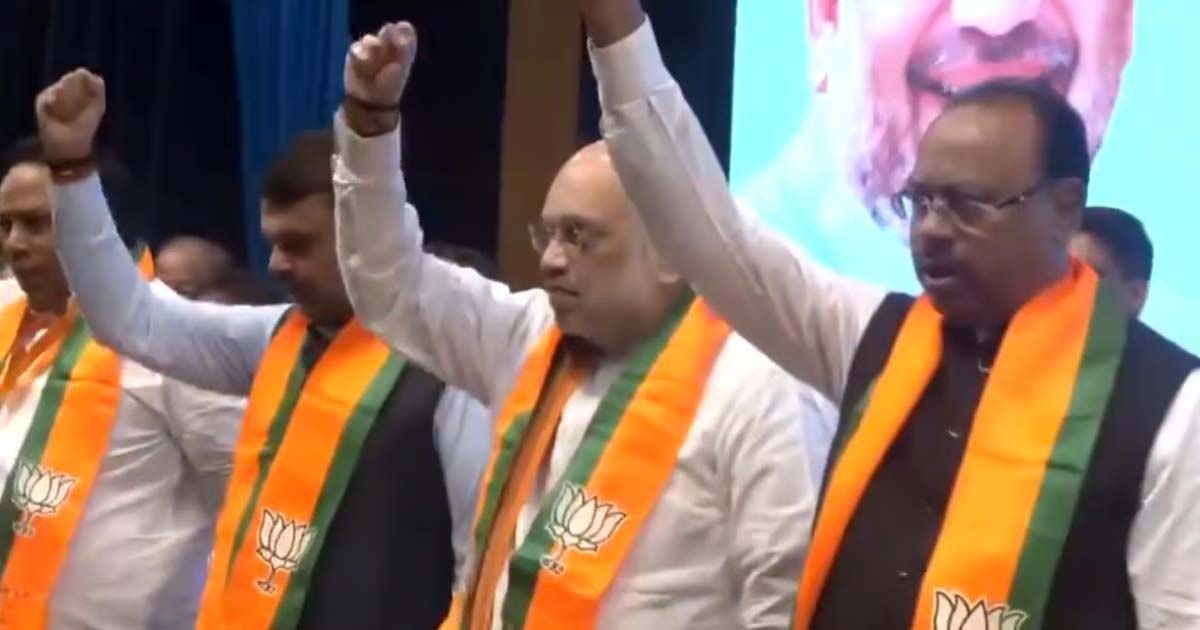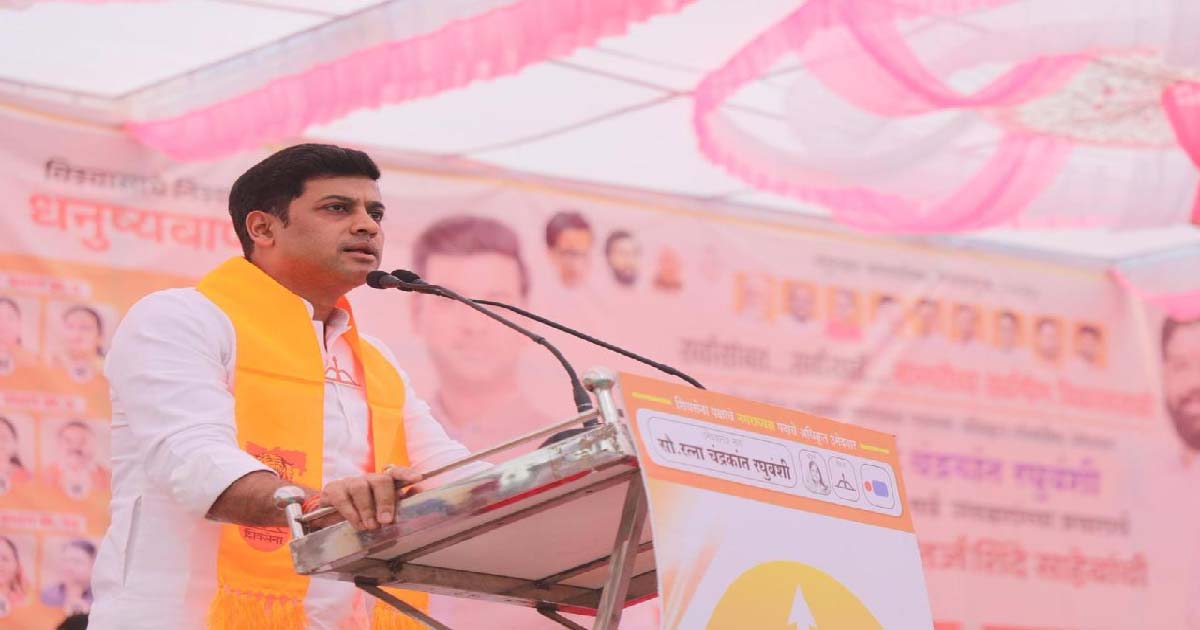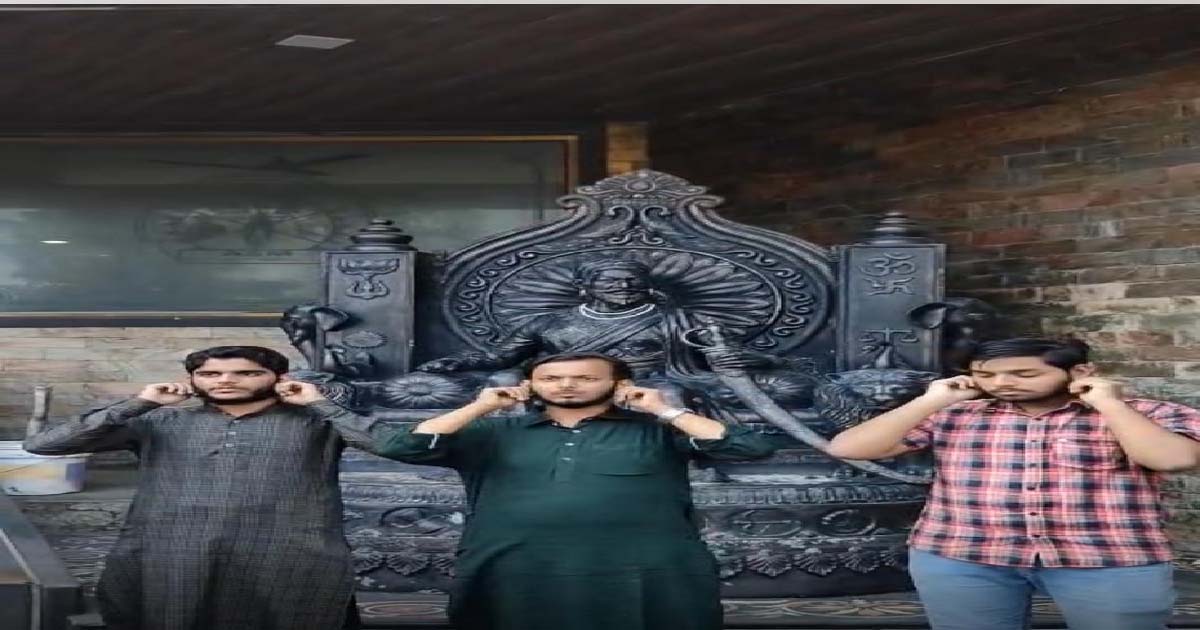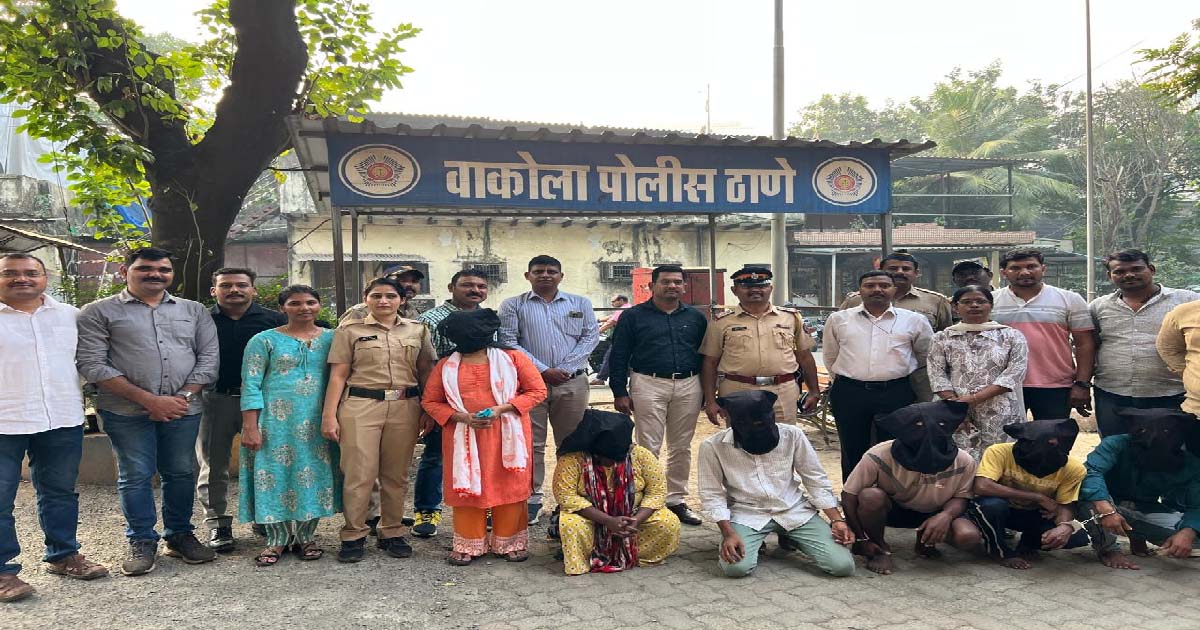Maharashtra
Elections 2024: Will BJP’s New Social Engineering Strategy In Maharashtra Reap Haryana Like Results

Mumbai: The Maharashtra government, hoping to replicate the success in Haryana, has reached out to several key communities including – the Scheduled Castes (SC) and the Other Backward Classes (OBCs).
The BJP strategy of consolidating the Haryana caste vote by reaching out to various communities and leveraging its influence with the OBC voters has paid rich dividends. With this proven strategy, the Mahayuti government too appears to be focusing on various small groups and special decisions are being taken tailor-made for these segments.
Political analysts say that the BJP’s success in Haryana, driven by impactful social and infrastructure schemes, aggressive campaigning, and the consolidation of anti-Jat votes, serves as a blueprint that Fadnavis is already applying in Maharashtra. With the opposition making efforts to woo the influential Maratha community to undermine the BJP, Fadnavis and the BJP are making it clear that they are committed to working for the welfare of all communities, including Marathas.
BJP’s Outreach Efforts
The BJP’s outreach is rooted in addressing the needs and aspirations of all citizens, whether they belong to urban centers, rural areas, or specific social groups. The success of Fadnavis lies in his ability to strike a balance between addressing Maratha’s concerns and ensuring other communities, such as OBCs, Dalits, and others, feel included in the BJP’s vision for Maharashtra.
Haryana’s win was built on a robust campaign strategy that emphasized inclusivity, social welfare, and infrastructure development. In Maharashtra, Fadnavis is implementing similar strategies, not only wooing key voter segments but also addressing the needs of all communities. For the BJP, the Haryana results underscore the power of targeting all voter segments and offering a well-rounded campaign that addresses broader societal concerns.
In Maharashtra, where the Maratha community holds significant sway, the BJP under Fadnavis seems to have adopted a similar approach. He is actively engaging with issues that impact the Maratha community, from economic concerns to social justice, alongside efforts to bring about development that benefits the entire state and all communities. His approach is one of inclusivity, aiming to unify rather than divide.
On Thursday, the Maharashtra cabinet took several key decisions, including approving an ordinance giving constitutional status to the state Scheduled Caste Commission and giving its nod to a proposal urging the Centre to hike the income criterion for inclusion in the creamy layer among OBCs from Rs 8 lakh a year to Rs 15 lakh.
The state Cabinet has also decided to allocate several allocate economic development corporations to different communities.
These include the Sola Kulswamini Economic Development Corporation for the Vani community, the Brahmlin Acharya Divyanand Puriji Maharaj Economic Development Corporation for the Lohar community, Sant Namdev Maharaj Economic Development Corporation for the Shimpi community, and Shri Krishna Economic Development Corporation for the Gawli community.
Additionally, corporations for the Lohar and Nathpanthi communities will also be established. An outlay of Rs 50 crore will be allocated for this initiative.
These decisions are seen as a part of the Mahayuti’s social engineering efforts to please smaller groups in the Maharashtra elections. Ahead of the elections in Haryana, where the BJP was perceived to be on the back foot after ruling the state for two consecutive terms, the state government had hiked the creamy layer ceiling from RS 6 lakh to 8 lakh.
The BJP’s approach in Maharashtra is not just a replication of the Haryana strategy, but a tailored response to the state’s unique political landscape, ensuring that it appeals to a broader and more diverse electorate.
“As Maharashtra gears up for its assembly elections, the BJP under Devendra Fadnavis is positioning the BJP as a party that works for all, irrespective of the social group. Through his leadership, the BJP aims to create a coalition of voters united by a shared vision of progress and development. With the right balance of community outreach, welfare programs, and infrastructure development, Fadnavis could very well deliver a Haryana-style victory, ushering in a new chapter of prosperity for Maharashtra,” said a senior BJP leader.
Additionally, the GR calls for the display of informative posters and banners about different sections of the Constitution in educational institutions. Street plays are encouraged to raise awareness, along with competitions in essay writing, debates, and elocution centered on constitutional themes. Local self-government meetings and state assembly sessions will begin with the reading of the Preamble.
To ensure the effective rollout of the ‘Ghar Ghar Sanvidhan’ initiative, a 12-member committee will be formed, chaired by the Chief Secretary of Maharashtra. At the district level, a 7-member committee, led by the District Collector, will oversee the initiative’s local implementation.
Maharashtra
Shiv Sena wave in North Maharashtra, Dr. Shrikant Shinde takes charge of election campaign

Mumbai Nandurbar: Shiv Sena is on a wave in North Maharashtra. A large number of “Ladli Bheenas” and youth are participating in the rallies of Shiv Sena youth leader Dr. Shrikant Shinde. Dr. Shinde launched his election campaign in North Maharashtra today. Addressing the gathering, he said that the Mahayoti government has taken strong steps to empower women and youth, which is why Maharashtra’s Ladli Behna Yojana is becoming self-reliant. Attacking the opposition, he said that many opposition leaders were opposing the “Ladli Behna Yojana” but under the leadership of Deputy Chief Minister Eknath Shinde, this scheme was implemented and it will not be stopped under any circumstances. The opposition is only spreading confusion, Ladli Behna will respond with their votes. Dr. Shrikant Shinde explained that in the last three years, Shiv Sena has reached every corner of Maharashtra under the leadership of Eknath Shinde. Shinde Sahib is empowering his workers by holding eight meetings every day. He has an Urban Development Department, which has resulted in record-breaking funding for the backward villages of Maharashtra, paving the way for strong rural development.
Dr. Shrikant Shinde criticized UBT and said that some people are experts in criticizing, but they have never done any concrete work for the people. That is why today Mahayoti candidates are seen everywhere. The people are well aware of the state of the opposition.
Maharashtra
Kalyan College Namaz Controversy: SIO Demands Action Against Perpetrators

Mumbai: SIO has demanded strict action against the hooliganism of Bajrang Dal and Vishwa Hindu Parishad on offering prayers in Mumbai’s Kalyan College. Here, State Secretary SIO Aziz Ahmed said that
The incident that took place at Ideal College of Pharmacy and Research in Kalyan is highly condemnable and unacceptable, where hooligans belonging to Bajrang Dal entered the college campus, threatened and harassed Muslim students for offering prayers and even tried to make them sit in front of the statue of Chhatrapati Shivaji Maharaj. This incident is a direct attack on religious freedom and the sanctity of the educational campus.
SIO strongly condemns this incident and expresses complete solidarity with the affected students. We demand that strict action be taken against the accused at the earliest, the college administration ensure the safety of the students and take concrete steps to prevent such incidents in the future.
We appeal to the entire student community to maintain religious harmony and remain united against such sectarian attitudes and demonstrate strong solidarity.
Maharashtra
Five-year-old kidnapped girl rescued from Vakola, five arrested, girl held hostage by uncle in Panol

Mumbai: Police has claimed to have arrested five accused, including uncle Momani, on charges of kidnapping a five-year-old girl. The gang had planned to kidnap and sell the girl. A case of kidnapping of a minor girl was registered on November 22 under the limits of Vakola police station. Several teams were formed in Zones 8 and 7. During the investigation, it was revealed that a suspicious rickshaw had gone to Panvel and returned. A man, a woman, a rickshaw driver and the girl were in the rickshaw between 2 and 3 am. The kidnappers were identified as the girl’s uncle Lawrence Niconelis Fernandes, 42, and his wife Momani, who is a Mangal degree, both of them had gone to Panvel by rickshaw and were going to sell the kidnapped girl. The kidnapped girl was recovered from the possession of their acquaintance Sans. The Sans gave details about the wanted accused during the investigation, after which Windra Dinesh Chavan, 60, and Anjali Ajit Korgaokar, 57, were arrested from New Panvel, Raigad. The kidnapped girl was sold for Rs 1,80,000 and Vrinda Chavan was taken into custody from her house and the girl was safely brought to Vakola. This operation was carried out by DCP Manish Kalwaniya on the instructions of Mumbai Police Commissioner Deven Bharti and the girl was recovered safely. In this case, the police have arrested rickshaw driver Latif Abdul Majeed Sheikh, 52, a resident of Santa Cruz, Lawrence Nicholas Fernandes, 42, a laborer from Raigarh, Mangal Dagra Jadhav, 38, from Raigarh, Kiran Maruti Sons, 38, from Panvel, Vrinda Vanish Chavan, 60, from Raigarh and the investigation is underway.
-

 Crime3 years ago
Crime3 years agoClass 10 student jumps to death in Jaipur
-

 Maharashtra1 year ago
Maharashtra1 year agoMumbai Local Train Update: Central Railway’s New Timetable Comes Into Effect; Check Full List Of Revised Timings & Stations
-

 Maharashtra1 year ago
Maharashtra1 year agoMumbai To Go Toll-Free Tonight! Maharashtra Govt Announces Complete Toll Waiver For Light Motor Vehicles At All 5 Entry Points Of City
-

 Maharashtra1 year ago
Maharashtra1 year agoFalse photo of Imtiaz Jaleel’s rally, exposing the fooling conspiracy
-

 National News1 year ago
National News1 year agoMinistry of Railways rolls out Special Drive 4.0 with focus on digitisation, cleanliness, inclusiveness and grievance redressal
-

 Maharashtra1 year ago
Maharashtra1 year agoMaharashtra Elections 2024: Mumbai Metro & BEST Services Extended Till Midnight On Voting Day
-

 National News1 year ago
National News1 year agoJ&K: 4 Jawans Killed, 28 Injured After Bus Carrying BSF Personnel For Poll Duty Falls Into Gorge In Budgam; Terrifying Visuals Surface
-

 Crime1 year ago
Crime1 year agoBaba Siddique Murder: Mumbai Police Unable To Get Lawrence Bishnoi Custody Due To Home Ministry Order, Says Report












